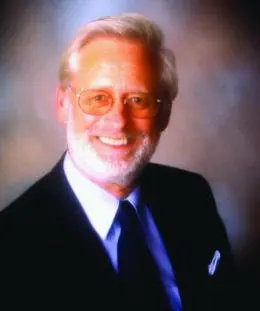 By Richard English
By Richard English
Many years ago I was the manager of a travel agency in the Home Counties and we had a friendly postman whom I shall call Fred. Fred used to book with us and one year had made a booking to Moscow ? a rather less common destination in the days I am speaking of, but Fred was an adventurous kind of chap.
Anyway, one morning he came in with our post and both he and I could see that his tickets were in the delivery and he smiled as he handed the package over, remarking that he would be in later to collect it back. I had a trainee working for me at that time and she asked him where he was going. ?Moscow?, he replied. ?Why on earth do you want to go there?? asked my trainee and Fred turned on his heel and walked out with a face of fury. Later, when he came back in, I had to apologise to him for my trainee?s faux pas and reassure him that he had every right to go where he wished and his choice was none of our business.
That tricky question ?why??
But although it is quite true that it is none of our business why people choose what they choose, we do need to know some of the reasons for people?s choice when we are faced with those awkward customers who ?don?t know what they want?. We need to know why they want to travel so that we can find out where they can go that will meet their hidden human needs.
?What? will give you ?why?
The question ?why?? is considered by almost everyone as intrusive and this is partly because ? as all children quickly learn ? it is the one question that can never be dismissed. No matter how many times a parent answers the question ?why?? the child can ask another ?why?? question ? until in the end the exasperated parent will retort, ?Because I said so, that?s why!? So avoid asking why and ask ?what?? instead.
?What?? is a less open question than why and, unlike ?why?? can be answered. And it?s very easy to accept the first answer to your ?what?? question and still not know what your customer really wants. So you have to probe.
Don?t be satisfied with the first answer
The kinds of questions that you might ask could include:
?What kind of resort do you like??
?What kinds of things do you like to do on holiday??
?What budget did you have in mind??
And these may get you the information you need. But they may not. Quite often you?ll get answers a bit like these:
?What kind of resort do you like??
?Oh, quite quiet.?
?What kinds of things do you like to do on holiday??
?Well, you know, sunbathing and a bit of sightseeing.?
?What budget did you have in mind??
?Oh, I need something reasonable.?
None of these answers is of much use. Which of you would like to tell me what, for example, a ?reasonable? price is?
You need to get more information and to do that you need to probe. Ask the question again, and again, and again until you get the information you need. Like this.
?What budget did you have in mind??
?Oh, I need something reasonable.?
?And when you say reasonable???
?Well, we have had quite a few expenses recently so we can?t really lash out???
?So how much were you thinking of spending for the whole party???
And so on. Keep at it and don?t stop asking until you get the information you need. Sometimes it?s difficult to just keep quiet and wait for an answer ? but that is what you have to do. Resist the temptation to fill the silence by answering customers? questions for them ? just keep quiet until you get the answer you need. When you first use the technique it might seem strange, and you could feel that you?re being intrusive. But you?re not. You have to find out this information if you are to find a suitable product for your customer.
And, even if you feel an almost overwhelming urge to step in with some suggestions, don?t do so until you have found out your customer?s needs. And never, ever guess. If you guess, your guess will be based on your ideas and preconceptions, not your customer?s ? and it?s unlikely that your and your customer?s ideas will be the same. To you a cheap holiday might be ?75; to your customer it might be ?1,000. So you could easily wrongly and offer the wrong product ? too cheap or too expensive, say ? then you won?t make the sale.
Summarise your understanding
And once you have finished your questioning and found out all you need about your customer?s needs, then summarise your understanding so that your customer has a chance to agree or correct you.
Then, and only then, you can find a product that will meet your customer?s needs. Of course, it will take longer than simply turning to your computer and making suggestions but the time you invest at this stage will be saved when you finally do suggest a product, since your suggestion should be as close as possible to your customer?s real needs. And if the product is right then the sale will almost make itself.
For more information about this, or any other aspect of training, contact Richard English at Dormers, Church Road, Partridge Green, West Sussex, RH13 8JS. Telephone 01403 710371 or email retraining@pncl.co.uk











